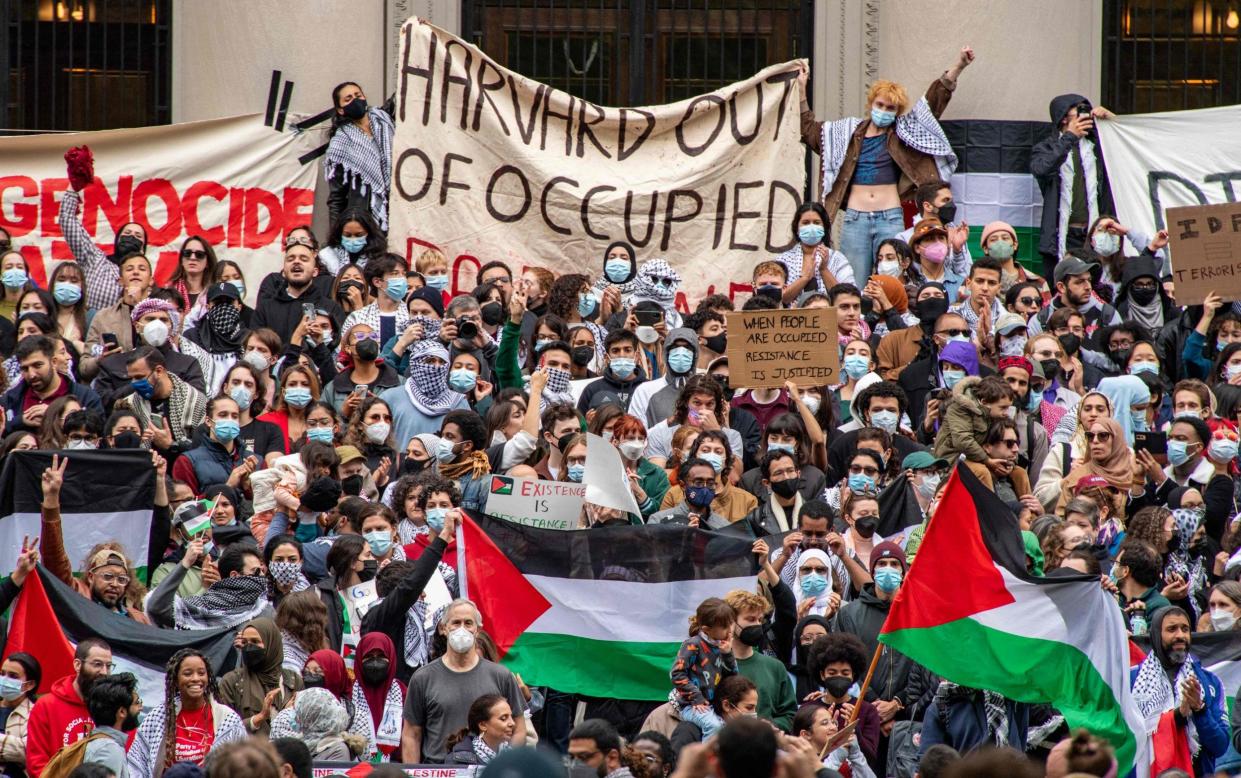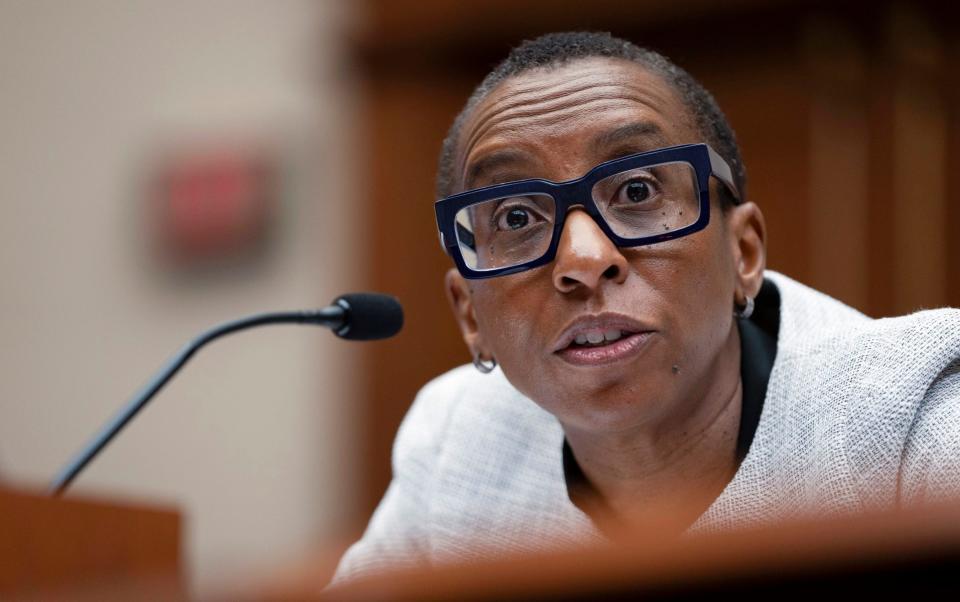Harvard goes silent on world affairs after Israel-Hamas backlash

Harvard University has said it will no longer take public positions on world affairs after a backlash to its response to the Israel-Hamas war.
The Ivy League institution said it would take up the recommendations of a faculty committee which warned the university that speaking outside its areas of expertise, such as issuing political statements, threatened “the integrity and credibility of the institution”.
It comes after the university triggered widespread condemnation with its response to the Oct 7 attack by Hamas and its handling of campus protests over Israel’s ensuing war in Gaza.
Harvard’s response to the attack on Israel was criticised by both Democrats and Republicans, who derided both the slow response and its ultimate statement as a “word salad”.
Claudine Gay, Harvard’s president, resigned in January on the back of a widely criticised appearance before a committee in the US Congress in which she declined to say calling for the genocide of Jews violated the university’s policies.
A committee made up of eight Harvard faculty members was established in April and released a report this week concluding that the university and its leaders should not “issue official statements about public matters that do not directly affect the university’s core function” as an academic institution.
It went on to say that by “issuing official statements of empathy, the university runs the risk of appearing to care more about some places and events than others”.
Moreover, “anodyne official statements may cause further distress to the very groups they are meant to comfort”.

The report added: “The university is not a government, tasked with engaging the full range of foreign and domestic policy issues, and its leaders are not, and must not be, selected for their personal political beliefs.”
Alan Garber, Harvard’s interim president, and other senior leaders said the university had accepted the recommendations of the committee, which said the principles should also apply to heads of departments and faculty councils.
Once implemented, it is likely that Harvard will no longer issue official statements of empathy to global events, such as it did for Ukraine following Russia’s invasion in February 2022, and for the victims of the Oct 7 attack in Israel.
However, the committee’s report did not embrace a concept of institutional neutrality, as some US universities have done since Israel’s war in Gaza.
Noah Feldman, a Harvard law professor and a co-chair of the committee, said this would allow the university to promote its core function and “defend ourselves against forces that seek to undermine our academic values”.
“In that sense, we aren’t neutral, and we can’t be,” he told the Harvard Gazette.

 Yahoo News
Yahoo News 
